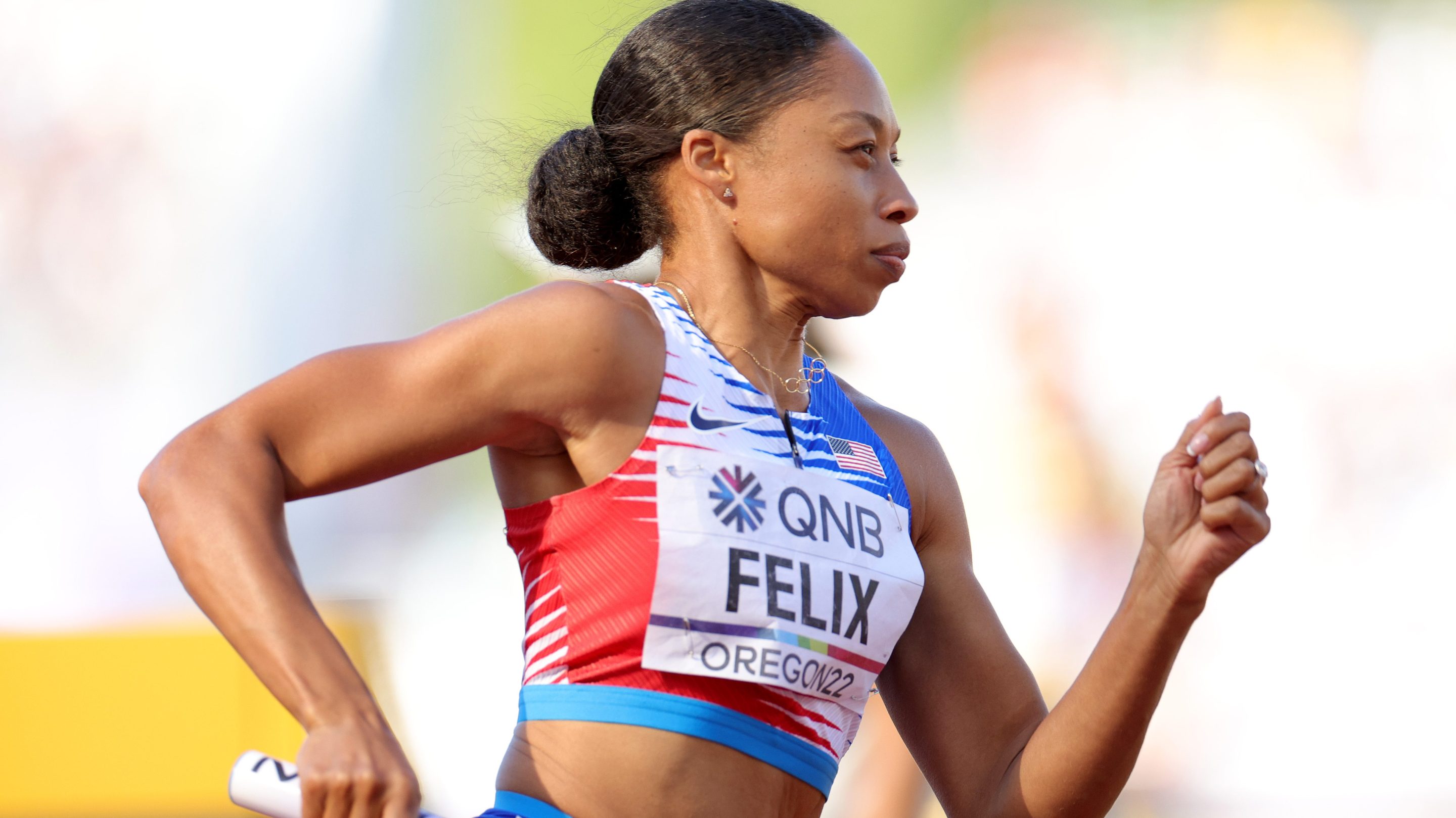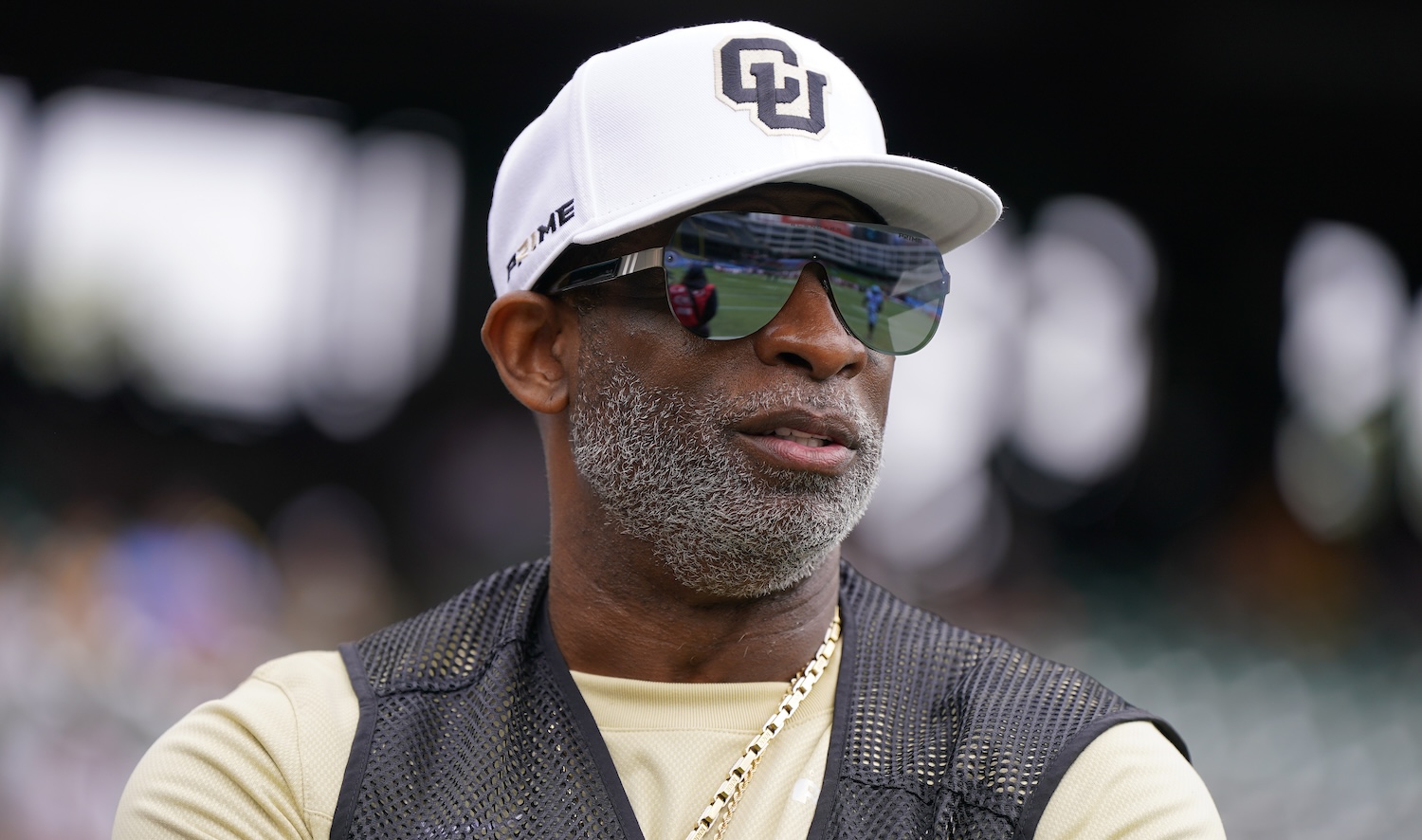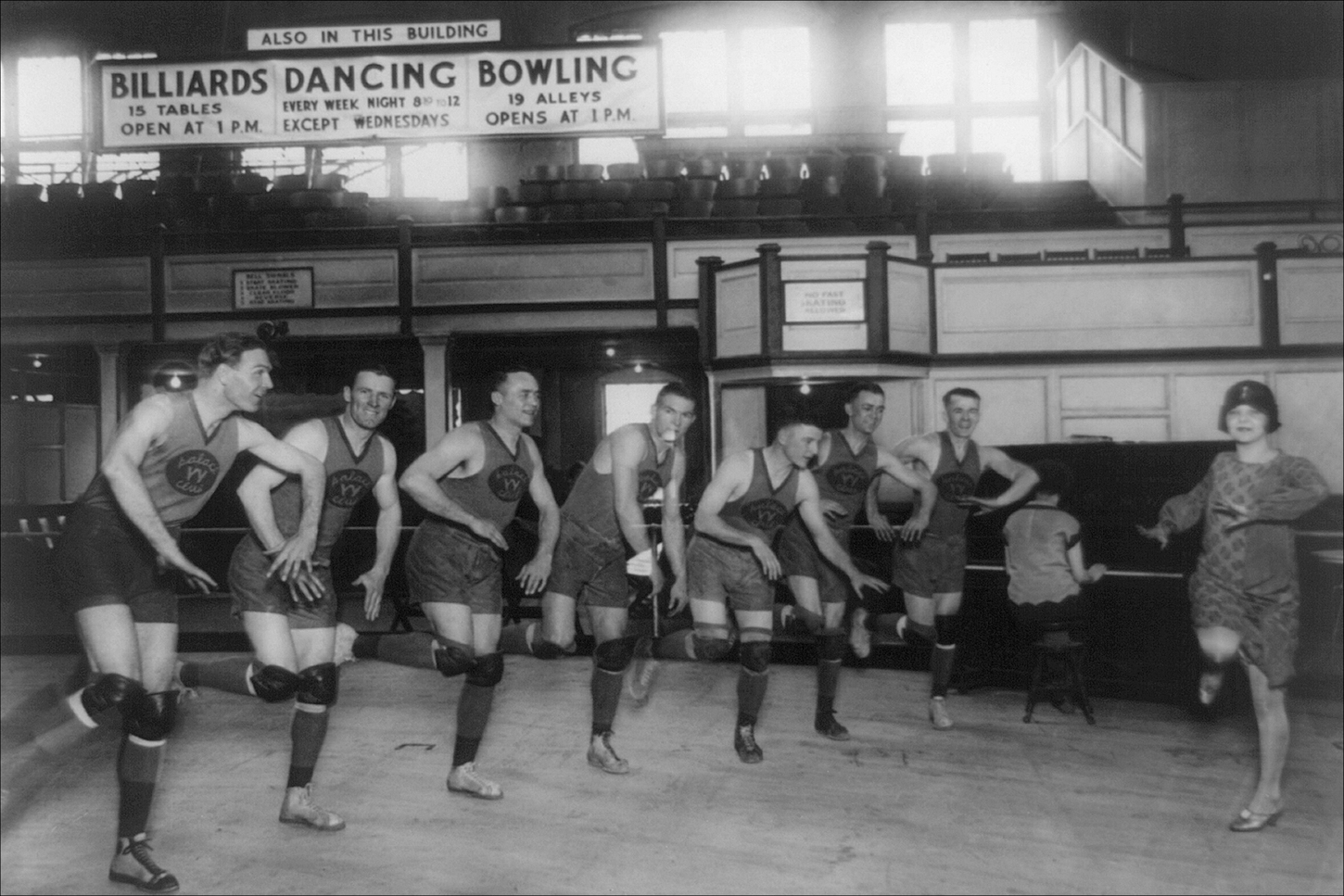I Will Miss Watching Allyson Felix Run
11:38 AM EDT on July 26, 2022

All these years and gold medals later, Allyson Felix's stride still lives in my mind. It's perfect. It's art. To watch Felix run is to feel humbled again and again because she runs somewhere between dancing and floating. Her feet don't so much pound the track as they glide. Every step is smooth and clean, like a figure skater moving across the ice. Her arms swing with ease and control; even her handoffs in the relays seem flawless, as if passing a giant stick while sprinting toward another teammate in a flash of inch-perfect choreography was somehow a natural motion, as everyday as going to the grocery store. This humbles me because Felix makes running look so smooth, so gorgeous, so easy, that watching videos of her run makes me believe, briefly, that I could do that too. I could not. Neither could you, nor billions of other people. That's why there is only one Allyson Felix.
A list of Felix's accomplishments is a daunting thing to assemble. Twenty World Championship medals, including 14 golds. Eleven Olympic medals, including seven golds, surpassing the record held by Carl Lewis. She got her last medal this past weekend, when the U.S. team won the 4x400 women's relay gold at the World Athletics Championships in Eugene, Oregon. Felix hadn't even been planning on running as part of that team; she was newly retired and having a nice meal when coach Bobby Kersee called her up and asked Felix if she could run a leg of the relay in the preliminaries to help the U.S. team qualify. Felix said yes. It meant that, even though she wasn't on the final 4x400 relay squad, Felix was part of the effort and notched one last World Championship medal before, once again, retiring.
The medals are just the start of her legacy. She returned to the podium, winning gold, at the World Championships in 2019, less than a year after giving birth to her daughter, Camryn, in an emergency C-section. After Felix shared the story of how Nike wanted to pay her 70 percent less because she was pregnant, it helped put pressure on the global sneaker powerhouse—one of the most influential sponsors in sports—to end the practice of penalizing athletes for being pregnant. In an interview with the New York Times in June, Felix acknowledged that her work on that front was just as important, if not more so, than all the track and field records she had smashed.
"I always thought that I would be like, 'Oh, these records or this Olympics or that,' and the last couple years have just completely changed that," Felix told the Times. "I hope that it’s one of having tried to change things, having left things better than when I came, and just really having a heart for people."
Felix's Olympics debut came at the 2004 Games in Athens, where she took silver in the 200 meters. She was just 18 years old at the time and already being hailed during the broadcast as "a glimpse of the future." She was beaten only by Jamaica's Veronica Campbell Brown, who had a perfect run, but even then you could see in Felix what was to come. As one of the announcers put it: "You gotta believe she'll be back here many, many times."
From that point on, Felix seemed so destined for greatness that it almost feels unfair to say, then, that of course she pulled it all off. That her reign was predetermined, which, obviously it was not. It's one thing to be born with talent, another to have a great work ethic, but neither guarantee success. How many athletes are billed as the next great one, and how many actually achieve it? There's always the chance and vagaries of life, an injury at the wrong time, a health scare, a bad coach, the pandemic we are all still living through. Somehow, through all the years, Felix kept running and kept winning at such a remarkable clip that you could easily take all it for granted, especially in the 4x400 meter women's relay, in which she has has helped the U.S. team win Olympic gold four straight times. I don't know that I can believe there will be a summer Olympics without her until I see it with my own eyes. Even then, I might have my doubts.
Felix's time on the track must end, but I wasn't quite ready yet, so on Monday I went down a YouTube rabbit hole of Felix's great runs: Her first World Championship gold medal; her first individual Olympic gold medal; what turned out to be her next-to-final run at the World Championships; even an entire compilation of her medal-winning runs. As you watch, the video quality will slowly improve as the technology gets more advanced and yet Felix's stride stays the same. Eventually, the algorithm began recommending me to videos that break down Felix's stride and what makes it so good. That's when I stopped. I did not want the magic to go away. I did not need to know the physics or the mechanics of all this. I wanted it to stay mysterious, unknowable, ethereal in a way that sportswriters of the 1920s would have given it a ridiculous yet memorable nickname and maybe even an entire poem. I will miss watching Allyson Felix run, even if I know how lucky I was to get to see it at all.
If you liked this blog, please share it! Your referrals help Defector reach new readers, and those new readers always get a few free blogs before encountering our paywall.
Investigations Editor. You can reach her at diana@defector.com or, if you prefer protonmail, dfmoskovitz@protonmail.com. If security is a concern, download the Signal app and send her a text at 929-251-8187.
Read More:
Stay in touch
Sign up for our free newsletter




